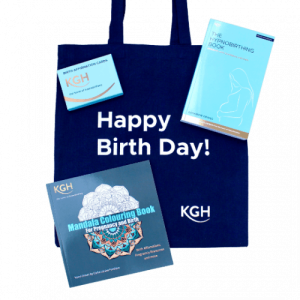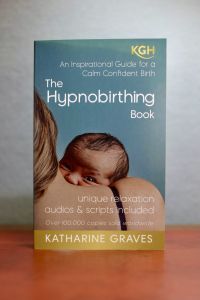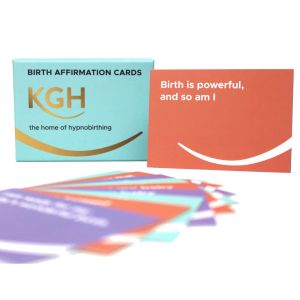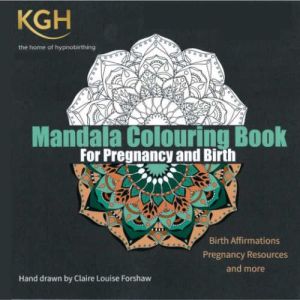
A question I often get asked about is the role of the birth partner. What can they do to make a difference? What can they do to help in pregnancy and birth? Are they just there to cut the cord? No, the birth partner is exactly that – a ‘partner’ to the birthing person and together, they make the perfect team to welcome the baby into the world.
A birth partner’s instinct is to protect, and that instinct has been developing for millennia too. It is a proven fact that the birth partner’s hormones adapt to this supporting, but vital role around the time of the birth, with these hormones reverting to normal a few weeks later. Quite amazing!
So all future birth partners, please read on! I hope these details will help you enjoy this amazing journey you are on!
Not just a spare part!
Perhaps the most valuable support a birth partner can give is simply being there! Without exception, everyone agrees that the continuous support of a known caregiver gives the best outcomes in birth. The birth partner can offer this continuity that sadly, the birthing person rarely experiences in the UK. The birthing person will go to antenatal appointments and rarely see the same midwife. If they give birth in hospital and there is a shift changeover, they may see at least four different midwives during labour. What the birth partner brings is that continuity – being there from start to finish, they are the constant that the mother will really appreciate and be able to rely on.
A knowledgeable KGH birth partner provides that continuity simply by being there for them throughout the entire labour, birth and post-birth journey. Just knowing that the person you know and care for mutually is there for you is of enormous benefit when giving birth.
A KGHypnobirthing birth partner provides important support for a woman giving birth:
In Pregnancy
Get involved:
If the birthing person asks you join them on a KGHypnobirthing course, do it. Attend the entire course with them – not only is this supporting them, but you will learn so much and I promise, you will even enjoy it! You will understand what the body is doing to grow that baby, you’ll come away knowing what labour involves and even have a list of roles just for you as the birth partner!
Equally, if they ask you to read The Hypnobirthing Book, watch a video, read them a relaxation script – please do it! All of these tasks will help you understand your role and you will be grateful to learn and support them on the journey.
Practice:
Most of the work of KGH is done in pregnancy so practice is essential. Not only will practicing KGH techniques in pregnancy bring a couple closer together, the partner knows that they have also played a hugely useful role in how the baby enters the world. This also deepens their bond with the newborn child after birth.
Ask questions:
A KGH birth partner can be extremely supportive in antenatal appointments (as well as in labour) and is the person who helps to ask the questions that ensures they makes the decisions that give them the best possible birth experience.
Learn:
Another big role for the birth partner is to know the birth plan and preferences inside out. We suggest you read and discuss this before labour starts so you know what the plan is prior to putting it into action! In fact, one step better – write the plan together. When they are in labour, they may not want to talk at all – even to you, but if a decision needs to be made, knowing the birth plan will ensure you, as their partner, can be spokesperson to ensure everything is done ‘to plan’. Do not underestimate you being their advocate, it is a hugely important role.
At the Birth
Protect:
The birth partner’s most important role is to protect the birth person’s space and make sure nobody disturbs their private bubble of positivity and calm. This is especially important in the down (second) stage of labour as that is when many midwives will start to instruct pushing and interfere with their space.
Prompts:
Prompts during surges can be very helpful, and many mothers have said, ‘It was their (birth partner) voice that kept me focussed. I couldn’t have done it without them.’ Remember that, at times, they may prefer silence.
Practice into action:
During pregnancy you may have gone to sleep listening to a KGH relaxation audio, and the cumulative effect of this relaxation is available to them when they gives birth. As the birth partner, one of your roles could be to ensure the relaxation is playing or to suggest it if it has slipped their mind.
Or the gentle back stroking that you practised in pregnancy is wonderful during surges when in labour.
Hydration & energy:
It is important that during labour they do not become dehydrated. Offer a sip of water from time to time. A few drops of Five Flower Remedy from Healing Herbs can help them remain calm and confident.
Giving birth is a strenuous physical activity and making sure they have snacks available as required will keep their energy up. Discuss this before so you know what snacks they may like and have them ready to give at regular intervals. They simply may forget to eat so this is a simple yet essential task for you as the birth partner!
Essential oils & remedies:
Use essential oil of lavender for a calm environment – which they may have used during pregnancy anyway as it promotes calm and relaxation. This can be in a cup of hot water, on a pillow or simply a few drops on a muslin or tissue which they can hold near their nose.
They may like to be offered arnica to dissolve under the tongue. This is the remedy that supports tissue under stress and, however gentle the birth, the body has been doing unusual work.
After the Birth
The ‘golden hour’ after birth is an extremely important time of transition for a new baby. Their whole being will be focussed on their baby, so it is up to the birth partner to keep an eye on whatever you had decided about, for example:
- Delayed cord clamping – ‘Wait for White’
- Injection of synthetic oxytocin
- Vitamin K for the baby
Immediate skin to skin contact at this time is essential and they should not be separated for anything unless it is an emergency. Of course, this time includes skin to skin bonding for the birth partner too – and doing so at the right time, can give them a little break to take in just what their body has just achieved – amazing!
As one partner said on a KGH course for their second child; ‘When we had our first baby, I thought birth was something that you do. Now I know it’s something that happens.’









